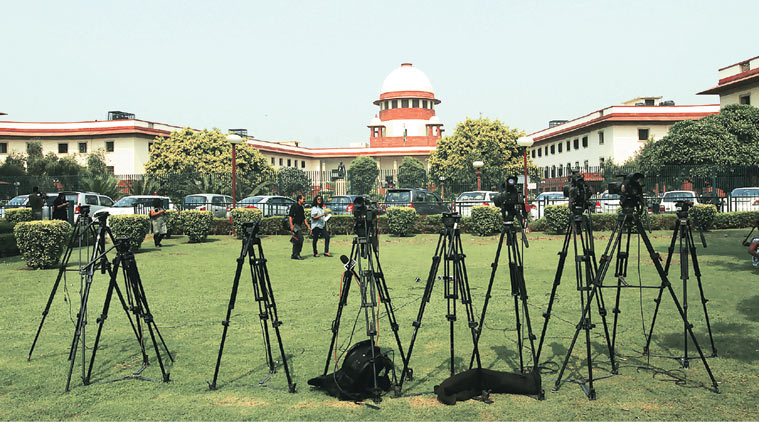Stay updated with the latest - Click here to follow us on Instagram
SC hearing on collegium system today; govt to push for transparency
To be led by Attorney General Mukul Rohatgi, the government will ask the Constitution Bench for a review of the memorandum of procedure in order to usher in transparency in selecting judges.
 Supreme Court of India
Supreme Court of India
As the Supreme Court on Tuesday hears views of the stakeholders to improve the collegium system, the central government is likely to seek a change in
The memorandum of procedure, which governs appointment of judges of the Supreme Court and high courts, was put in place following two apex court judgments in 1990s that established the collegium and ruled in favour of the primacy of the Chief Justice of India in making such appointments. It was adopted after the CJI’s approval.
[related-post]
To be led by Attorney General Mukul Rohatgi, the government will ask the Constitution Bench for a review of the memorandum of procedure in order to usher in transparency in selecting judges and to let the public know about the procedure being adopted by the collegium in approving judicial appointments.
Further, the government, according to sources, will also assert the need for the collegium to devise guidelines to fix minimum eligibility criteria for judges to be considered for elevation, besides the necessity of the mechanism of shortlisting to be publicised and put in the public domain on the official website of the Supreme Court and high courts.
The Centre’s arguments are likely to revolve around the need to institutionalise the collegium system, where the procedure of selection is transparent and is based on certain well-established principles. Information about the candidates being rejected for elevation, as per the government, should also be put in the public domain.
Notably, the government is also going to make it clear that there is no question of locking horns with the judiciary because the Constitution Bench has quashed the National Judicial Appointments Commission (NJAC) and that it will render its cooperation to make sure vacancies are filled up expeditiously, but without compromising with the probity.
On October 16, the Bench had declared unconstitutional an amendment to validate the NJAC Act, which had contemplated a significant role for the executive in higher judiciary appointments.
The five-judge Bench ruled with a 4:1 majority that judges’ appointments shall continue to be made by the collegium system in which the CJI will have “the last word”. It had then asked the government, petitioners and other stakeholders to put forth their views regarding improvement of the collegium system.







